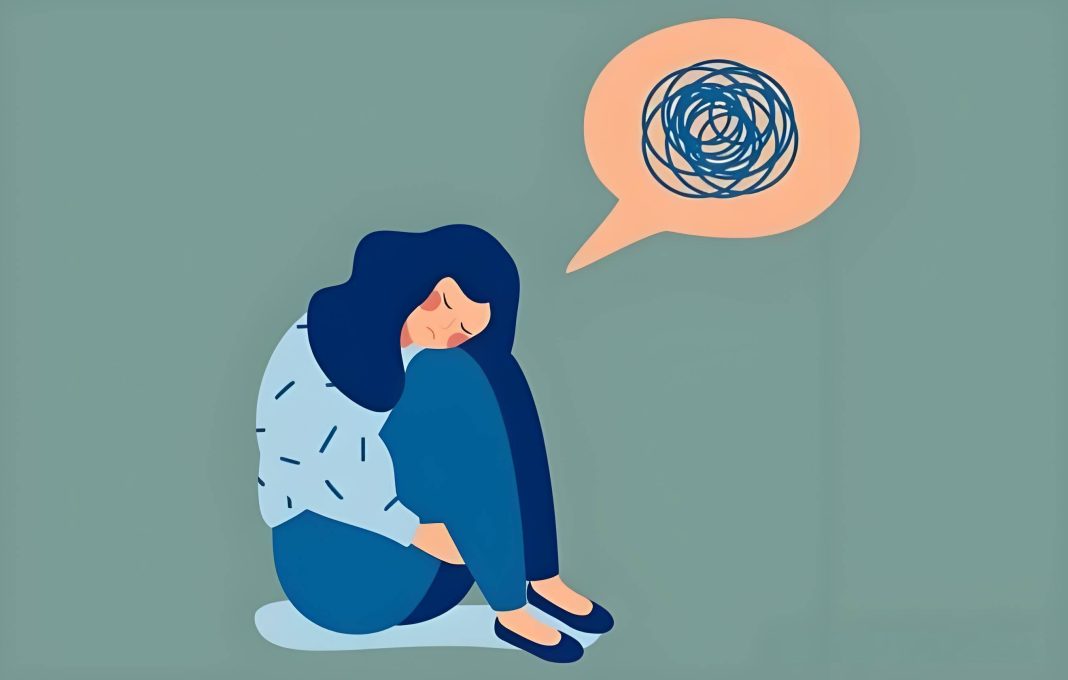In daily life, we may have had brief doubts or illogical thoughts about certain things. However, when these doubts and illogical thoughts grow stronger, and even begin to affect our normal life and relationships, we may be on the verge of developing delusions.
Delusional disorder is an extremely complex mental disorder that profoundly affects people’s mental health, plunging patients into deep confusion and increasing feelings of loneliness and instability. So, what causes someone to develop delusional disorder? The answer to this question may be much more complex than we imagine.
1. Life Stress: Burden on the Mind
Modern society moves at a rapid pace, and stress is ubiquitous. Whether it’s the burden of work, family responsibilities, or the complexity of social relationships, it can make people feel overwhelmed. When stress becomes too great, cracks may appear in our psychological defenses, and our mental state may begin to weaken.
In such situations, delusional disorder may creep in quietly. Stress not only makes people anxious and tense but may also lead them to misunderstand or overreact to their surroundings. For example, a person under immense pressure in the workplace might start suspecting whether colleagues are talking behind their back, or even suspect that their boss is deliberately undermining them. Once these thoughts take root, like seeds growing in the mind, they gradually form fixed delusions.
2. Isolation and Social Withdrawal: Breeding Ground for Delusions
Isolation and social withdrawal are another major factor in delusional disorder. In today’s era of information explosion, people may appear more interconnected on the surface than ever before, yet they may feel more lonely and detached in reality. This sense of isolation is particularly likely to occur in groups lacking social support, those living alone for extended periods, or individuals disconnected from society.
When a person remains isolated for a long time, lacking normal interaction and communication with the outside world, their thinking patterns may gradually deviate from reality. The feeling of loneliness makes them overly sensitive and suspicious of others’ behaviors and words, paving the way for delusional disorder to quietly thrive. For instance, an elderly person living alone for an extended period might start suspecting whether neighbors are eavesdropping on their life or even suspecting that their intentions are malicious.
3. Childhood Trauma and Psychological Shadows: Dark Side of the Mind
Experiences during childhood have a profound impact on personality and psychology. If a person experienced serious trauma during childhood, such as abuse, neglect, or prolonged emotional deprivation, these negative experiences may leave indelible marks deep within their psyche.
The psychological shadow left by trauma can lead a person to live in fear and insecurity for an extended period, which may eventually evolve into extreme distrust and hostility towards the outside world. Delusional disorder patients may subconsciously reenact their childhood traumas in their current lives, causing them to develop intense paranoid delusions about people and their surroundings.
4. Genetics and Biological Factors: Invisible Chain of Inheritance
In addition to environmental and psychological factors, the occurrence of delusional disorder may also be influenced by biological and genetic factors. Studies indicate that individuals with a family history of mental illnesses are more susceptible to delusional disorder. Genes may influence the balance of certain neurotransmitters in the brain, thereby affecting an individual’s emotional regulation and thinking patterns.
Furthermore, certain physical conditions such as brain injuries, epilepsy, or chronic illnesses may also trigger delusional disorder. These conditions can alter normal brain function, leading to symptoms like cognitive confusion and emotional imbalance, which then trigger delusions.
5. Substance Abuse and Psychological Stimuli: Catalysts for Delusions
Substance abuse, especially of psychostimulant drugs, often plays a significant role in delusional disorder. Stimulants such as amphetamines, cocaine, or certain psychoactive drugs, when used improperly, can cause severe disruptions in the nervous system, leading to a variety of delusions.
Moreover, significant psychological stimuli such as the death of a loved one, divorce, or severe economic crises can also act as catalysts for delusional disorder. Faced with the impact of such events, a person’s psychological defenses may crumble instantly, exacerbating pre-existing mental problems rapidly, ultimately resulting in delusional disorder.
6. Information Overload and Social Anxiety: Modern Society’s Hidden Dangers
In this era of information explosion, we are inundated with various information daily, and this information overload can also be a modern cause of delusional disorder. Conspiracies on the internet, fake news, excessive media sensationalism can subtly influence our ways of thinking, making our views of the world become more extreme and radical.
Furthermore, the increasing safety anxiety and sense of fear in society provide fertile ground for the emergence of delusional disorder. When we face uncontrollable social changes and potential threats, inner feelings of insecurity may lead us to doubt and fear everything around us, gradually allowing delusional disorder to take shape in such an environment.
The causes of delusional disorder are multifaceted, ranging from psychological stress to social isolation, childhood trauma to genetic inheritance, substance abuse to various anxieties brought about by modern society. These factors combined can lead a person into the fog of delusions. However, this doesn’t mean we cannot emerge from this fog. By prioritizing mental health, seeking professional help promptly, fostering healthy lifestyle habits and building robust social support, we can effectively prevent and improve delusional disorder.
Delusional disorder is not a sign of personal weakness or failure; rather, it results from the combined effects of social and psychological factors. Understanding this not only enables us to better help those trapped in delusions but also empowers us to face stress and challenges with resilience, thereby steering clear of the illusory fog and returning to a reality-based and healthy life.


